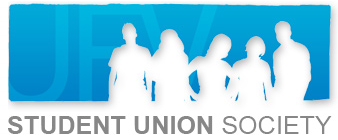Nominations opened Tuesday for the second annual Student Union Society’s (SUS) student awards, now including a seeking reconciliation award.
As outlined in the nomination package, the award “recognizes a student leader who is committed to the ongoing work of implementing recommendations of the Truth and Reconciliation Commission to Indigenize the campus community.”
The idea for the award initially came out of meetings on campus regarding reconciliation and indigenizing, both within SUS and with Senate and the Indigenous Centre.
“This was one of the recommendations. It wasn’t to expand the SUS awards, [but] in some way to recognize this,” Sukhi Brar, SUS president. “Then it was just coming up with the right terms and talking to people about what exactly we’re trying to recognize here and what kind of thing we’re trying to encourage students to do.”
While the award exists to recognize students who are making steps towards reconciliation on campus, Brar hopes that it will also spark conversation surrounding indigenization, as well as educate students.
“A lot of us are in programs that haven’t encountered this material yet,” she said. “As a kinesiology student, I’ve never heard of territory acknowledgement. I didn’t know the significance of that until I got involved in all these other public events that UFV has where you hear it and people explain the significance of it, but we all need to be doing more so it reaches more students … I know there’s a lot of people that are trying to change that, but it’s a slow process.”
Like the three other award categories (leadership, volunteer, and club or association), the award will still focus on highlighting the work students are doing on campus.
“We’re hoping this recognizes that kind of work, but it also motivates students to do that kind of work, or just draw attention to that kind of work that’s being done by the student body,” Brar said. “If I look at last year’s nominees, they were fairly involved, but at least 50 per cent of that work and the people nominated, I didn’t know the stuff they were doing until it was announced. I think people forget how much activity we have on campus.”
Although SUS has not yet confirmed after whom the award will be named, like the other awards, the seeking reconciliation award will be named after UFV alumni.
“It’s adding legacy pieces and tradition and culture, which we’re kind of missing on this campus,” Brar said. “This is our way of recognizing work that the UFV community has done … We’re recognizing students, but with naming these awards we’re recognizing people that have made significant contributions in these areas. It’s something to aspire to.”
The award is only part of a larger plan that Brar is hoping to implement, outlining SUS’ responsibility to address and make efforts for reconciliation.
“The importance that SUS as an organization commits to this long term, things we can be doing to promote indigenous culture, to make UFV more welcoming to Indigenous students, that’s turned into, I don’t know whether to call it a strategic plan or an action plan, but it’s turning into that,” she said.
It’s still unclear what the plan will include, but it’s scheduled to be presented to the SUS board for approval at the next meeting on March 28.
“If you look across Canada, there’s a lot of universities that have passed action plans … but there’s not a lot that’s being done by student unions, and it’s kind of a challenge to come up with that,” Brar explained. “I think the past few months have been learning a lot about that. It’s been conversations with Indigenous students, the centre, with Shirley and our chancellor, to find out what we can be doing to support things that are already happening on our campus by the institution.
Nominations for the awards will be accepted until March 17 and the awards will be presented at the second annual SUS Awards & Volunteer Recognition Event, which will be taking place at the end of this semester, likely in the beginning of April.


